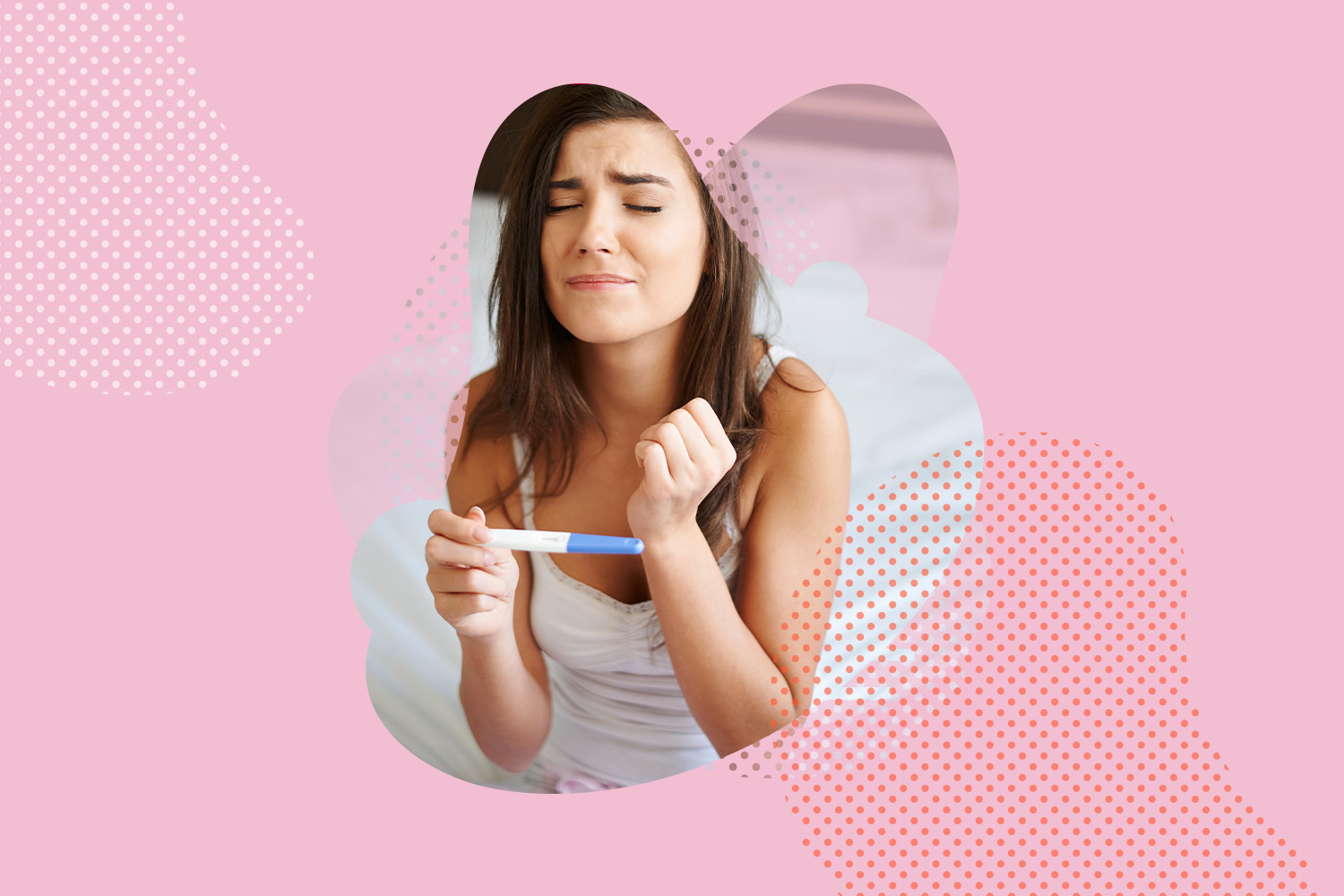7 DPO Symptoms: What to Expect and When to Test
Many women suspect a pregnancy after a missed period, but if you are trying to conceive it can be hard to wait that long. Experts recommend waiting at least two weeks before taking a pregnancy test, but if you are eager for the result you might wonder if it’s possible to experience symptoms before that.

At 7 days past ovulation (DPO) you may not realize you are pregnant but changes are already taking place inside your body. Read on to learn more about 7 DPO pregnancy symptoms and what is happening at 7 DPO.
What is happening to your body at 7 DPO?
Early symptoms of pregnancy can be very similar to those of an impending period and knowing what is happening in your body, as well as understanding typical early pregnancy symptoms, can help ease the anxiety of the two week waiting period. Hormonal changes, like the rise and fall of estrogen and progesterone in your cycle, play a key role in the symptoms you experience. And because the same hormones are also at play in pregnancy, 7 DPO symptoms can look a lot like those leading up to a period.
7 DPO pregnancy symptoms
Higher progesterone levels are believed to play a key role in the symptoms of premenstrual syndrome (PMS). In a normal cycle, if implantation of a fertilized egg doesn’t occur, progesterone levels drop and menstruation occurs. But if a pregnancy has taken place, progesterone production ramps up (moving to the placenta once formed) and elevated levels could cause similar symptoms of an approaching period.
At 7 DPO, if implantation has occurred, progesterone production will continue and you may experience familiar symptoms such as breast tenderness, mood swings, and cramps to name a few. Keep in mind that most women won’t be able to tell the difference between 7 DPO symptoms and the signs of a regular menstrual period.
Irritability (mood swings)
Just like in premenstrual symptoms or PMS, irritability and mood swings can be a sign of pregnancy. Research has found that intense changes in hormones during this time are linked to psychological distress such as anxiety and depression. If changes in mood or irritability are a regular part of your cycle, you may not be able to tell if they are related to pregnancy or not. But for those that don’t normally experience premenstrual symptoms or PMS, changes in mood and obvious irritability can be an early sign of pregnancy.
Cramps
Implantation normally occurs 6-12 days after ovulation and may be accompanied by cramping. Usually less intense than period cramps, these cramps originate in the uterus and most women feel them in their lower abdomen. Light bleeding or spotting may accompany the cramping and many women confuse them for signs of an impending period.
Paying attention to the timing of implantation cramps can help differentiate them from period cramps. Cramping from early pregnancy is most likely to occur between the 8-10th day, but can occur as early as the 6th and as late as the 12th day. Period cramps usually take until 14 DPO and beyond therefore 7 DPO cramps could be a sign of early pregnancy rather than an impending period.
Headaches
Not only are headaches a well-studied phenomenon of pregnancy, but they can be a common occurrence for some women as their hormone levels fluctuate. Changing hormone levels in early pregnancy may lead to headaches or dizziness and could be a sign of early pregnancy. It’s important to note that many potentially life-threatening conditions can present with headache so talk to your doctor or healthcare team to rule out anything more serious if you are suffering.
Fatigue
A hallmark of early pregnancy, your body produces more progesterone and you may begin to feel a sense of fatigue or exhaustion. While progesterone works to prepare the uterus for pregnancy, it also contributes to feelings of exhaustion and fatigue. Although it’s known for its role in maintaining a pregnancy, progesterone also helps promote sleep by stimulating other neurotransmitters. So as production ramps up in early pregnancy and progesterone levels fluctuate, your sleep and energy levels may be affected.
Tender breasts
Breast tissue undergoes many changes throughout a pregnancy and you may notice increased sensitivity or changes in shape and size. Whether due to hormones or the increase in blood flow pregnancy brings, breasts may increase in size and feel heavier and swollen as they prepare to produce milk for a new baby. Tender breasts are a very common early pregnancy symptom and you may notice your breasts feel swollen, painful, sensitive, and heavy especially in the early stages of pregnancy.
Food cravings
Sensitivity in early pregnancy can impact more than your breast tissue. You may become sensitive to certain tastes or crave new ones which can manifest as food cravings. Studies show that high hormone levels during pregnancy can alter your sense of taste and smell. You may be craving foods you’ve never had before or develop a sudden aversion to ones you’ve always loved. This may be one of the best-known signs of pregnancy and usually disappears by the end of the first trimester.
Can you test for pregnancy at 7 DPO?
Because many of the early signs of pregnancy may also signal an impending period, it can be quite hard to tell the difference between the two. Taking a home pregnancy at 7 DPO may result in a BFN despite being pregnant. Since home tests rely on the concentration of the pregnancy hormone hCG in your urine to determine if you are pregnant, you may not be producing enough to register on the test or early results may be inaccurate.
Interpreting the results of a 7 DPO pregnancy test may cause some confusion, especially if hormone levels haven’t risen enough yet. You may have no symptoms at 7 DPO and only a small number of women will get a positive pregnancy test at this point. Paying attention to your exact fertility hormone concentrations with the new progesterone wands of the Mira tracker can help you in detecting pregnancy earlier than home pregnancy tests.
7 DPO and negative pregnancy test (BFN)
Although you can technically test as early as 7 DPO to see if you are pregnant, it is still very early and you may get a negative result. Only a very small number of women will get a positive pregnancy test at 7 DPO since implantation may not even have occurred yet. Ideally, you should wait until the first day of a missed period to take a pregnancy test for the most accurate results.
7 DPO and positive pregnancy test (BFP)
Taking a pregnancy test at 7 DPO and getting a positive result is unlikely but not unheard of. Even if you are pregnant, your body may not have produced enough hCG to register on a home test and you could get a negative result. False-positive results could come from testing too early and detecting a chemical pregnancy. Your doctor may be willing to do a blood test that can detect pregnancy at 7 DPO but many will want to wait until your period is due.

Whether you are pregnant or not at 7 DPO, your body will undergo certain hormone changes that can produce similar symptoms. The above-mentioned symptoms can be a sign of early pregnancy when they occur at 7 DPO.
Mira’s Editorial Process
All content produced by Mira meets stringent editorial standards, ensuring excellence and accuracy in language and medical precision. Every piece undergoes thorough fact-checking and review by qualified professionals. Check out our full editorial process to learn more.




